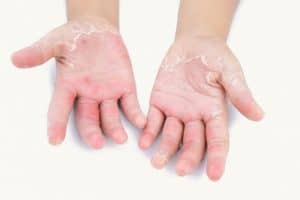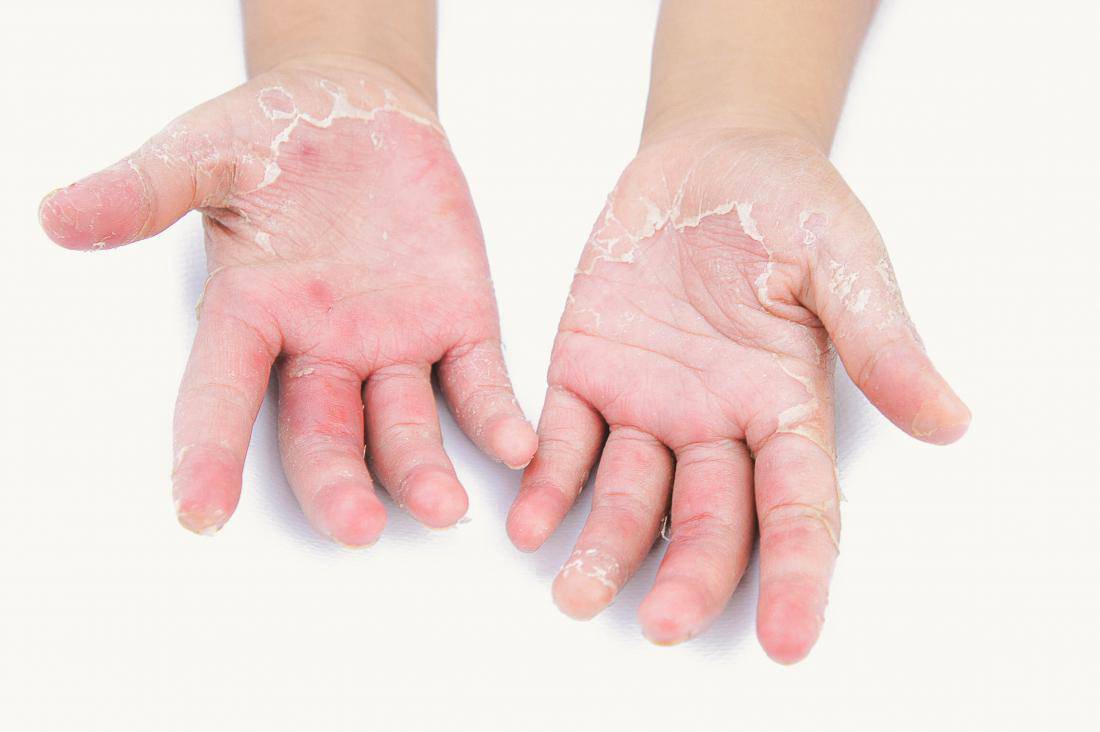
If you are suffering from thickening of the skin on your hands or feet accompanied with red, scaly plaques, you may be suffering from palmar/plantar psoriasis. These areas of thickening can be painful and can make it difficult to stand prolonged periods of time difficult, due to the pain. The skin on your hands and feet can even crack open (called fissures) and bleed. Sufferers of palmar/plantar psoriasis also report a burning sensation and occasionally stiff joints in their hands/feet.
This type of psoriasis, like other types of psoriasis, can be inherited. No one knows why this type is isolated only on your hands/feet, but it may due to another skin condition, injury, or allergic reaction in that area. Stress has been found to cause this condition to flare-up, as well as some medications. Patients who are obese, have a metabolic syndrome (such as diabetes), smoke, or drink large amounts of alcohol, may find have more severe cases of this disorder.
While this condition may never go away and it cannot be cured, it can be managed at home and with the help of a dermatologist. If your psoriasis is only on your hands, you have palmar psoriasis. If your psoriasis is only on your feet, you have plantar psoriasis. Luckily, treatment for either condition is the same. Palmar/plantar psoriasis is a chronic condition in which you may experience periods of remission as well as flare-ups. One of the goals of treatment is the keep the skin cells from growing so fast as well as removing the current scales from the skin, in order to reduce the number of symptoms you experience.
Treatments of palmar/plantar psoriasis include:
- Weight loss (if needed)
- Exercising on a regular basis
- Limiting your alcohol consumption
- Quit smoking (if applicable)
- Vitamin D analogs
- Treating any other diseases or disorders you have (like diabetes, hypertension, or hyperlipidemia)
- Ultraviolet Light Therapy
- Using emollients (thick barrier creams to help prevent cracking)
- Heel balms that contain urea or salicylic acid
- Coal tar
- Topical steroids
- Prescription medication such as methotrexate or acitretin
Managing diet, stress load, moisturizers, and regular bathing routines can help to keep the psoriasis at bay. Also remember to always protect your skin while working outside to avoid injuries to your hands and feet.
If you are suffering from thick, cracked skin on your hands or feet, call The Dermatology Center of Indiana location nearest you. Our dermatologists can diagnosis your skin condition and help you manage any troublesome symptoms you may be experiencing.
Disclaimer: This blog provides general information and discussion about medical, cosmetic, mohs, and surgical dermatology. The words and other content provided in this blog, and in any linked materials, are not intended and should not be construed as medical advice. If the reader or any other person has a medical concern, he or she should consult with an appropriately-licensed dermatologist or other health care worker.
